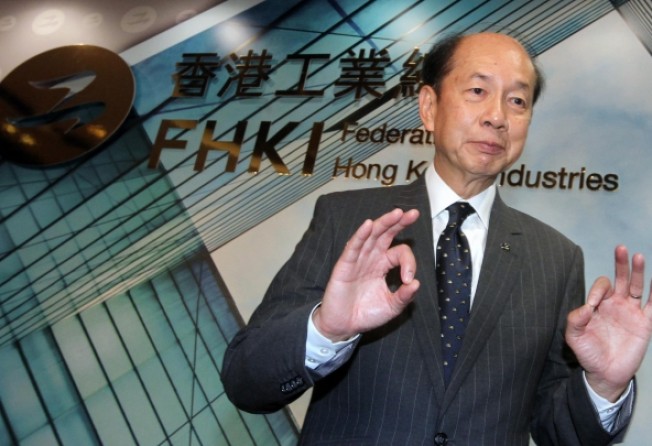Foreign labour needed in Hong Kong to keep wages down: industry
Business chief says more overseas labour is required for low-skilled jobs like dish washing

The new chairman of the Federation of Hong Kong Industries says the government should consider opening certain job sectors to foreign labour because a persistent labour shortage risks driving up wages and prices.
Stanley Lau Chin-ho, who succeeded Roy Chung Chi-ping as federation chairman yesterday, said sectors in need of imported labour included dish washing, construction work and day care for the elderly.
Lau's comment came a day after Chief Executive Leung Chun-ying said that Hong Kong's workforce would begin to shrink in 2018.
Lau, also a non-official member of the Economic Development Commission that was set up by the chief executive to discuss economic issues, said the business sector generally agreed with the push to import more labour.
"Nowadays, you can pay HK$40 an hour and you still cannot find a dishwasher," he said. "Of course, the union would say pay HK$50 or HK$60 then, but when that happens the restaurant would probably charge HK$80 for a bun."
Labour shortages were not just confined to low-skilled jobs, he said, with the medical sector also complaining of a lack of nurses and doctors. On another contentious issue, the setting of standard work hours, the largest local representative of manufacturers said no law should be passed to establish a benchmark unless the labour shortage problem eased.
"What if we want to hire a second worker to collaborate with the first one who can no longer work long hours? Where do we find the extra hands?" Lau said.
Unions criticised the employers for linking the two issues.
Meanwhile, the federation said many of its members that used to be based in Guangdong were moving their manufacturing businesses to other parts of the mainland including Hunan, Sichuan, Jiangxi and Guangxi provinces, taking advantage of incentives offered by local governments. Those firms' success came as others that had failed to transform and upgrade their products were left behind in Guangdong to struggle with falling orders and shrinking profit margins.
Lau said he expected Hong Kong exports would grow by a high single-digit figure this year, despite slowing economic growth on the mainland and in other emerging economies.